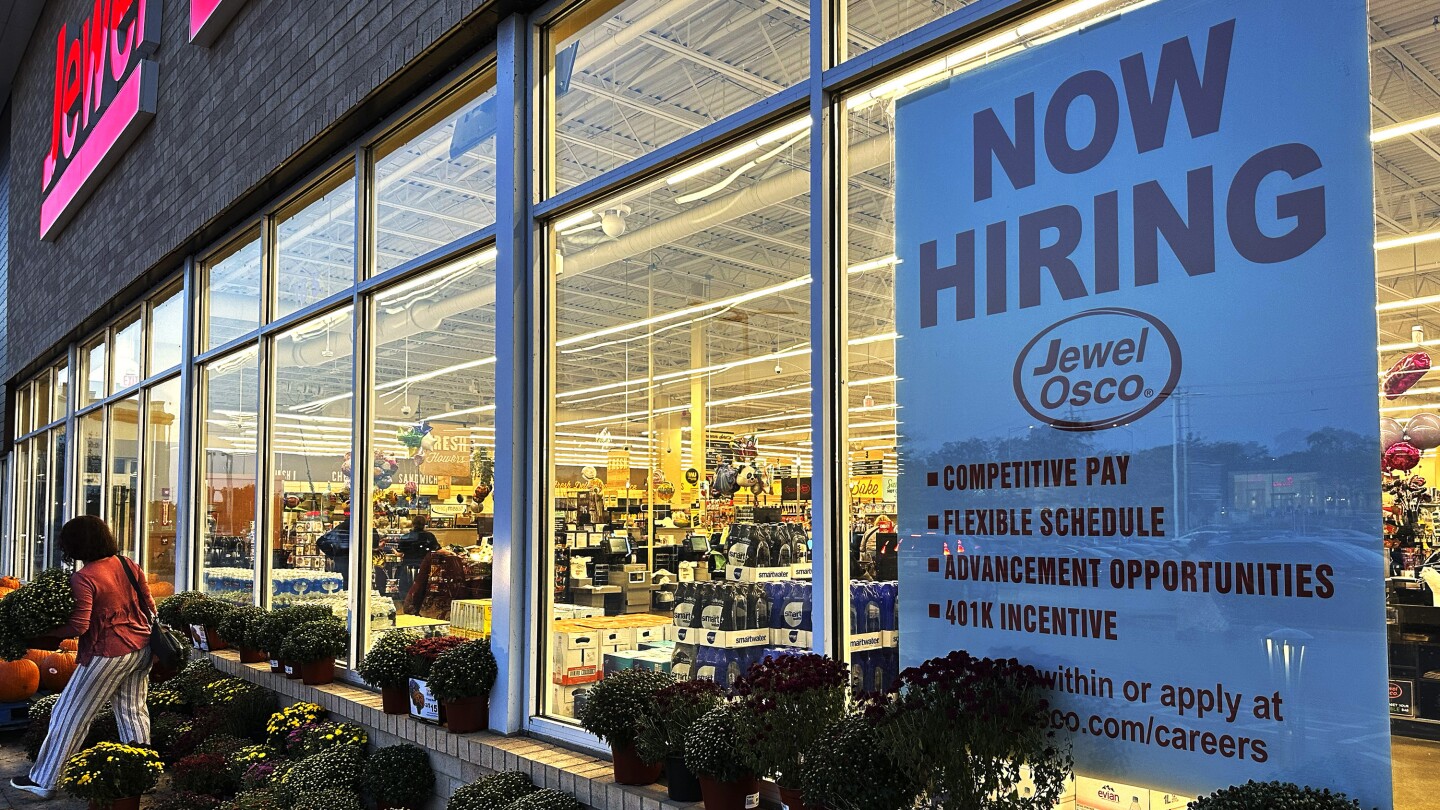NEW YORK (AP) — Most business economists think the U.S. economy could avoid a recession next year, even if the job market ends up weakening under the weight of high interest rates, according to a survey released Monday.
Only 24% of economists surveyed by the National Association for Business Economics said they see a recession in 2024 as more likely than not. The 38 surveyed economists come from such organizations as Morgan Stanley, the University of Arkansas and Nationwide.
Such predictions imply the belief that the Federal Reserve can pull off the delicate balancing act of slowing the economy just enough through high interest rates to get inflation under control, without snuffing out its growth completely.
…
High rates work to slow inflation by making borrowing more expensive and hurting prices for stocks and other investments. The combination typically slows spending and starves inflation of its fuel. So far, the job market has remained remarkably solid despite high interest rates, and the unemployment rate sat at a low 3.9% in October.



Every economists was predicting recession a few months back. They have an accuracy rate less than horoscopes
Tbf, the act of predicting a recession can change the outcome, since the economy is just people reacting to things with money.
If everyone is expecting their houses to fall down from thin walls, so they start adding panels to their walls, suddenly the newly sturdy walls arent falling down anymore.
Right except people aren’t lemmings. Just because I hear some talking head say how he thinks there will be a recession in a month doesn’t mean I cut all spending.
An individual is not a lemming, no. But people? People are scared, stupid, lemmings who will follow the crowd, almost every time.
We’re social creatures, designed to work in groups. The downside (or upside I guess) is that people do follow the crowd.
… What? Did you click on the wrong comment?
Any witches I can follow on Mastodon who provide stock analysis???
This isn’t even remotely true, why is it being upvoted?